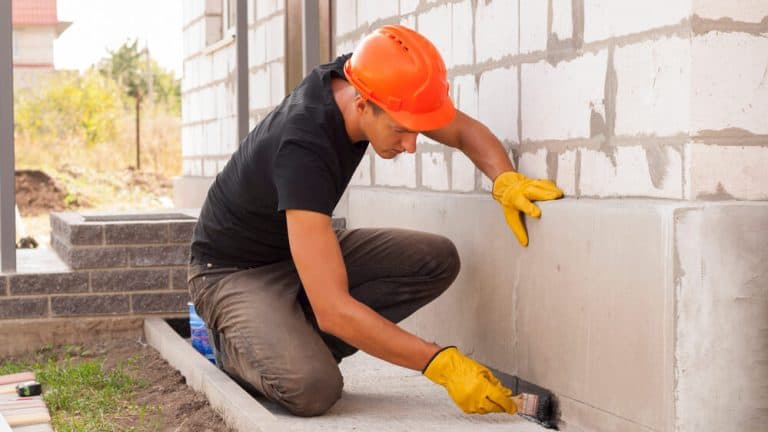Introduction
A well-constructed Retaining Walls Raleigh NC structure is not just an aesthetic enhancement for your property but also a vital component in preventing soil erosion and managing water drainage effectively. Whether you are looking to build a retaining wall for functional support or decorative purposes, choosing the right materials and design is crucial. In Raleigh, NC, homeowners and businesses alike rely on high-quality retaining wall solutions to improve their outdoor spaces. This guide will help you understand the benefits, types, and considerations when installing a retaining wall.
Importance of Retaining Walls
Retaining walls play a critical role in landscape architecture, providing both functional and aesthetic benefits. Some of the key advantages include:
- Erosion Control: Retaining walls prevent soil from washing away, especially in areas prone to heavy rainfall.
- Improved Drainage: These structures help manage water runoff, reducing the risk of flooding and water damage.
- Enhanced Property Value: A well-built retaining wall adds visual appeal and increases the market value of your property.
- Maximized Usable Space: Terracing your yard with retaining walls creates leveled areas that can be used for gardening, patios, or outdoor living spaces.
Types of Retaining Walls
Choosing the right type of retaining wall depends on your landscape needs, soil conditions, and aesthetic preferences. Below are some common types of retaining walls used in Raleigh, NC.
Gravity Retaining Walls
Gravity walls rely on their weight to resist the pressure from the soil behind them. They are often made from stone, concrete, or brick and are ideal for small to medium-sized projects.
Cantilever Retaining Walls
These walls use a reinforced concrete base to leverage the weight of the soil. Cantilever walls are more suitable for taller structures and provide excellent stability.
Anchored Retaining Walls
For situations requiring extra reinforcement, anchored retaining walls use cables or other anchoring methods to provide additional support. This type is ideal for steep slopes or high load-bearing areas.
Segmental Retaining Walls
Segmental walls are made from interlocking blocks that do not require mortar. They are flexible, easy to install, and highly durable, making them a popular choice for residential landscaping.
Materials for Retaining Walls
Selecting the right material for your retaining wall is essential for durability and visual appeal. Here are some commonly used materials:
Concrete Blocks
Concrete retaining walls are long-lasting, low-maintenance, and versatile in design. They can be shaped and colored to complement your landscape.
Natural Stone
For a timeless and elegant look, natural stone retaining walls offer durability and unique aesthetics. However, they require skilled installation.
Brick
Brick retaining walls provide a classic appearance and are known for their strength. They are often used in both traditional and modern landscapes.
Timber
Wood retaining walls are cost-effective and easy to install. However, they may require more maintenance compared to other materials due to their susceptibility to weathering.
Factors to Consider Before Installation
Before constructing a retaining wall, several factors need to be considered to ensure longevity and effectiveness:
- Soil Type: Different soil types require different retaining wall designs and materials.
- Drainage System: Proper drainage prevents water buildup behind the wall, reducing the risk of structural failure.
- Height and Load: The height of the wall and the load it needs to support determine the type and material of the wall.
- Local Regulations: Check with local authorities for any permits or regulations regarding retaining wall construction.
Installation Process
Step 1: Planning and Design
Assess your landscape needs and choose the right type of retaining wall. Consider consulting a professional to ensure proper design and material selection.
Step 2: Site Preparation
Clear the area, remove debris, and level the ground. Mark the layout of the retaining wall.
Step 3: Foundation Construction
A strong foundation is key to a durable retaining wall. Dig a trench and fill it with compacted gravel or concrete footing.
Step 4: Building the Wall
Stack the chosen materials carefully, ensuring proper alignment and stability. Use reinforcement where necessary.
Step 5: Drainage Installation
Install drainage pipes or gravel backfill to prevent water accumulation behind the wall.
Step 6: Finishing Touches
Once the wall is constructed, backfill the area, compact the soil, and add landscaping elements to enhance the appearance.
Maintenance Tips for Longevity
To keep your retaining wall in excellent condition, follow these maintenance tips:
- Inspect Regularly:Check for cracks, leaning, or signs of erosion.
- Keep Drainage Clear:Ensure drainage pipes are not clogged to prevent water buildup.
- Repair Minor Damages:Address small cracks or shifts immediately to avoid major repairs later.
- Seal and Waterproof:Applying sealants helps protect the material from weathering and moisture damage.
Why Choose Professional Services?
While DIY retaining wall installation may seem like a cost-saving option, hiring professionals ensures structural integrity, proper drainage, and adherence to local codes. Expert contractors have the experience, tools, and knowledge to build retaining walls that last for years.
For top-quality retaining wall solutions in Raleigh, NC, visit Drainage & Waterproofing Solutions. Their team offers expert design, installation, and maintenance services to enhance your outdoor space.
Conclusion
Retaining walls provide both practical and aesthetic benefits, making them a valuable addition to any property. Whether you need a small decorative wall or a large soil-retaining structure, choosing the right materials and professional service is crucial. Investing in a well-designed retaining wall not only enhances your landscape but also ensures long-term stability and protection against soil erosion. If you’re considering a retaining wall project in Raleigh, NC, reach out to experienced professionals for the best results.





